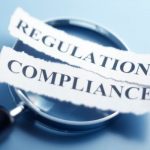Keeping employees, volunteers, church members, and visitors safe is important not only because it’s the right thing to do, but also because it reduces a church’s financial risk. At an organizational level, safety raises issues that intersect across several governance areas: insurance, employment, compliance, and litigation risk.
Churches are not factories, which is to say that they are not places that ordinarily are thought of as full of potential hazards. But even a desk job comes with sources of potential injury. Bad ergonomics can cause strain-related conditions like carpal tunnel syndrome. Someone might fall on a badly maintained stairway, or on a floor that is unusually slippery during wet weather.
Workplace safety is a complicated area, both legally and practically. The federal Occupational Safety and Health Act of 1970 (or OSHA Act) exempts churches from its rules only with respect to employees who perform religious services. If a church has secular employees, such as administrative staff or teachers at a church-run school, those employees are covered by OSHA.
Employers who are subject to OSHA have a general obligation to provide a safe work environment for their employees. There are a range of potential safety issues that a church might need to take steps to address, including:
- Fire safety, including having an evacuation plan and providing sufficient fire extinguishers.
- Provision of appropriate safety equipment for the work to be completed.
- Maintaining church property in a safe condition.
What are the consequences of not providing a safe work environment? The chief concern is always that someone will suffer a serious injury. No church wants to see one of its employees forced to take time off work or, worse, be rendered disabled by a preventable injury at work. If an accident happens, the church can expect to pay higher premiums on its workers’ compensation and general liability insurance.
The Church Law Center of California supports clients in the religious and secular nonprofit communities in their efforts to control risks and improve governance. If your organization is thinking about compensating some or all of its directors, give us a call to discuss the pros and cons. We can be reached at (949) 892-1221 or through our contact page.






